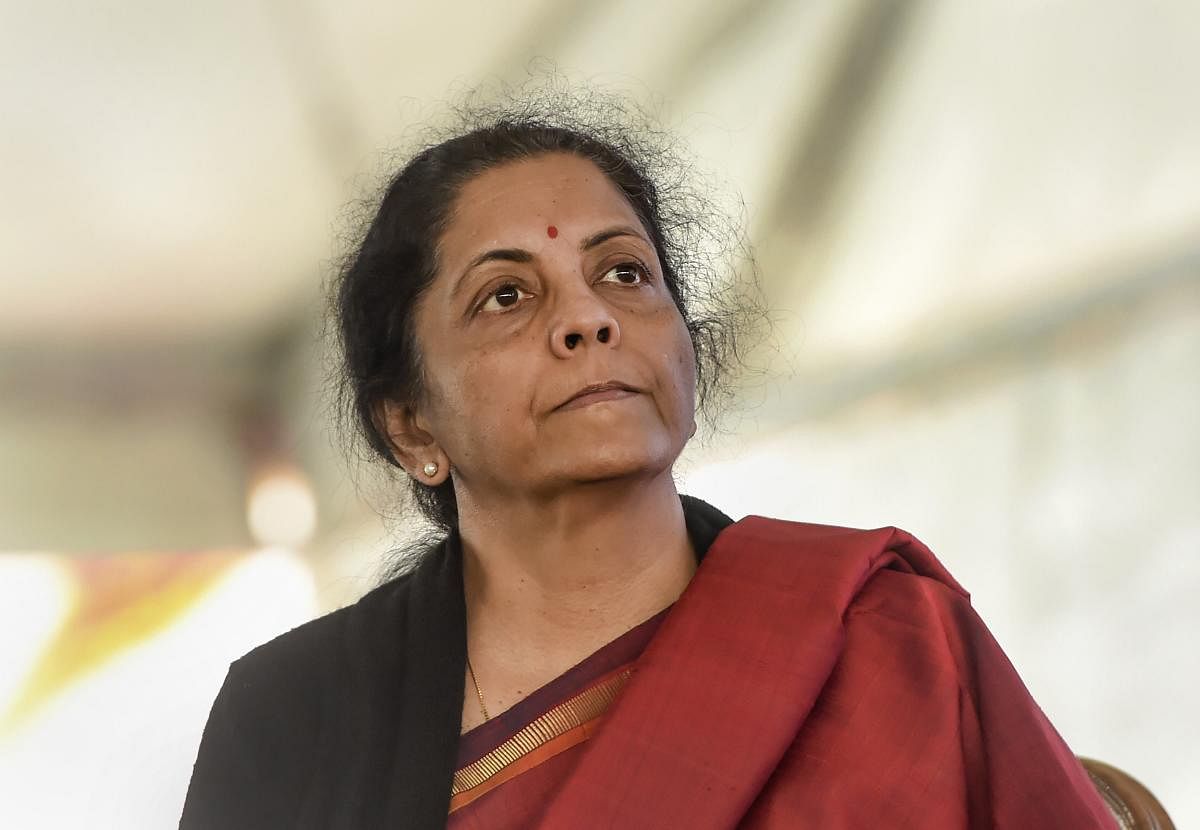
The government on Saturday proposed 11 per cent increase in the farm credit target to 15 lakh crore for 2020-21 and announced special rail and flight services for the transportation of farm produce as its seeks to double farmers' income by 2022.
The government also proposed promoting 'one product one district' for better marketing and export of horticulture crops. It also called on states for early implementation of three key central model laws on land leasing, agriculture produce and livestock marketing and contract farming.
Presenting the Budget, Finance Minister Nirmala Sitharaman said, "Our government is committed to the goal of doubling farmers' incomes by 2022."
She further said that prosperity of farmers can be ensured by making farming competitive. "For this, farm markets need to be liberalised. Distortions in farm and livestock markets need to be removed."
Purchase of farm produce, logistics and agri-services need copious investments. Substantial support and hand-holding of farm-based activities such as livestock, apiary, and fisheries need to be provided for, she said.
Barely two years left for achieving the target of doubling farmers income, the Finance Minister said farmers desire integrated solutions covering storage, financing, processing and marketing.
To improve marketing, Sitharaman said the Indian Railways will set up a "Kisan Rail" - through public private partership (PPP) arrangements -- to build a seamless national cold supply chain for perishables, inclusive of milk, meat and fish.
There would be refrigerated coaches in Express and Freight trains as well.
'Krishi Udaan' will be launched by the Civil Aviation Ministry on international and national routes. This will immensely help improve value realisation especially in North-East and tribal districts, she added.
To provide better access to bank credit, the government proposes raising the target for disbursing agriculture credit to Rs 15 lakh crore for the 2020-21 fiscal from the current target of Rs 13.5 lakh crore.
Normally, farm loans attract an interest rate of 9 per cent. But the government is providing 2 per cent interest subsidy to ensure farmers get short-term farm loan of up to Rs 3 lakh at an effective rate of 7 per cent per annum.
Since Non-Banking Finance Companies (NBFCs)and cooperatives are active in the agriculture credit space, Sitharaman said the NABARD re-finance scheme will be further expanded.
The financing on Negotiable Warehousing Receipts (e-NWR) has crossed more than Rs 6,000 crore. This will be integrated with electronic National Agriculture Market (eNAM), she added.
To further expand storage and warehousing facilities, the Finance Minister proposed creating warehousing, in line with Warehouse Development and Regulatory Authority (WDRA) norms.
"Our government will provide viability gap funding for setting up such efficient warehouses at the block/taluk level. This can be achieved, where states can facilitate with land and are on a PPP mode," she said.
State-run Food Corporation of India (FCI) and Central Warehousing Corporation (CWC) will undertake such warehouse building on their land too, she added.
India has an estimated capacity of 162 million MT of agri-warehousing, cold storage, reefer van facilities etc. NABARD will undertake an exercise to map and geo-tag them.
As a backward linkage, the finance minister proposed a 'Village Storage scheme' to be run by the Self Help Groups (SHGs). This will provide farmers a good holding capacity and reduce their logistics cost. Women, SHGs will regain their position as "Dhaanya Lakshmi".
To libersalise agri-market, she urged the state governments to undertake implementation of three central model laws -- Model Agricultural Land Leasing Act, 2016, Model Agricultural Produce and Livestock Marketing (Promotion and Facilitation) Act, 2017; and Model Agricultural Produce and Livestock Contract Farming and Services (Promotion and Facilitation) Act, 2018.
To harness potential in fishery sector, the government said it will involve youth in fishery extension through 3,477 'Sagar Mitras' and 500 Fish Farmer Producer Organisations.
Growing of algae, sea-weed and cage culture will also be promoted as the government aims to raise fish production to 200 lakh tonne by 2022-23 and achieve fishery export of Rs 1 lakh crore by 2024-25.
The government also proposed to put in place a framework for development, management and conservation of marine fishery resources.
As water stress related issues are now a serious concern across the country, Sitharaman said, "Our government is proposing comprehensive measures for one hundred water stressed districts."
To promote solar energy, the government proposed a scheme to enable farmers to set up solar power generation capacity on their fallow/barren lands and to sell it to the grid would be operationalized.
It also said it would expand the PM-KUSUM scheme to provide 20 lakh farmers for setting up stand-alone solar pumps and also help another 15 lakh farmers solarise their grid-connected pump sets.
In order to change the prevailing incentive regime which encourages excessive use of chemical fertilisers, the government said it would encourage balanced use of all kinds of fertilizers including the traditional organic and other innovative fertilizers.